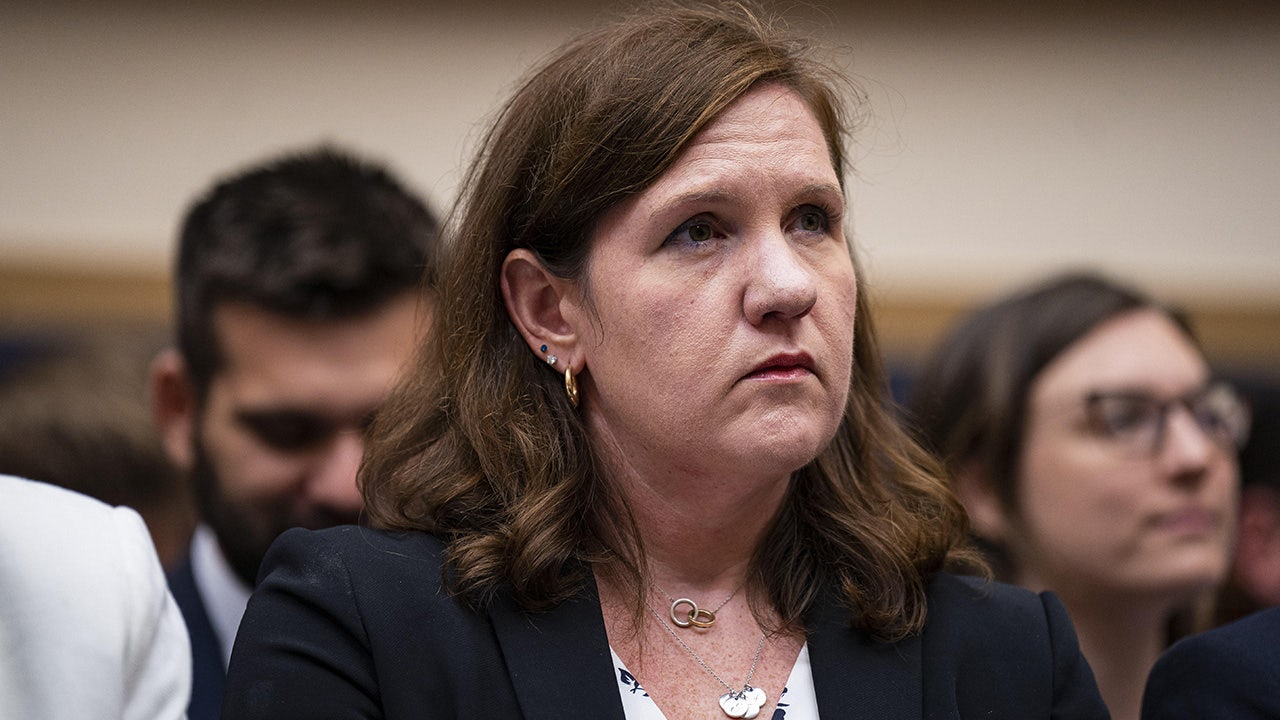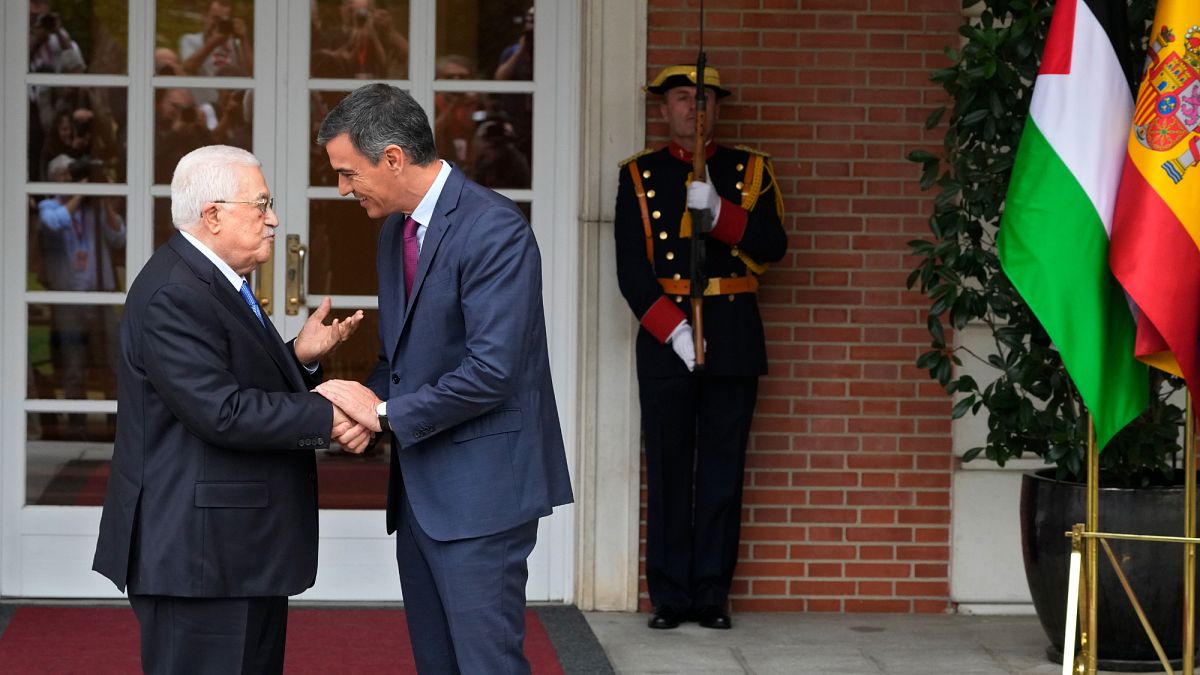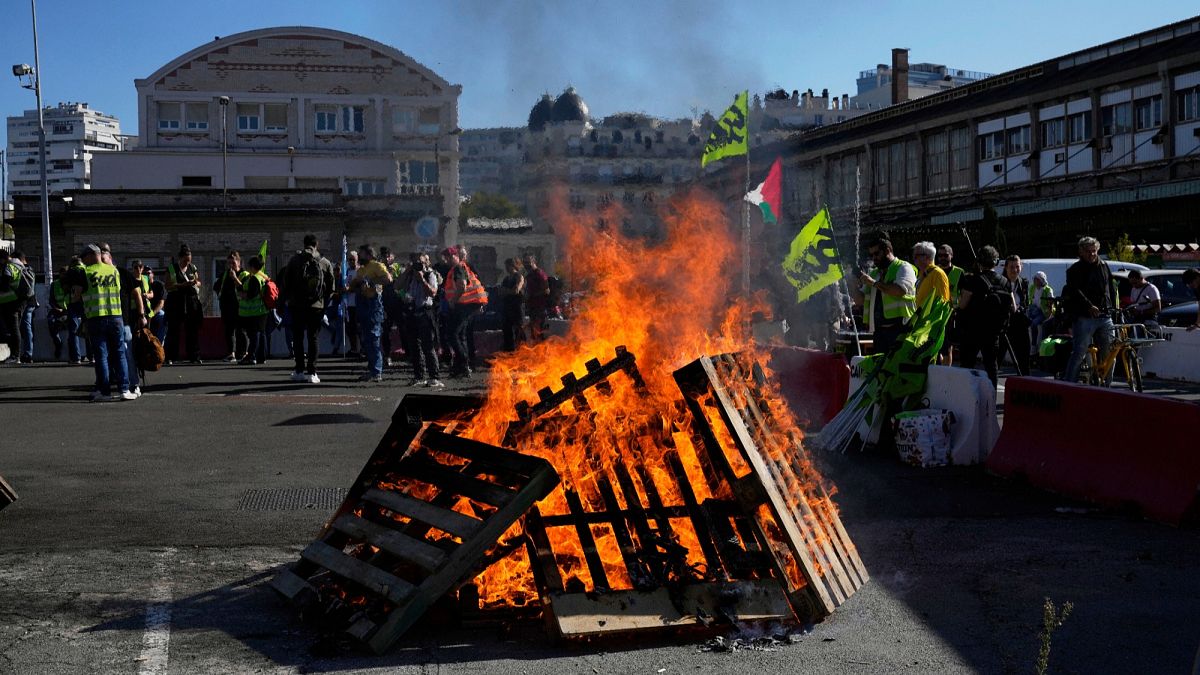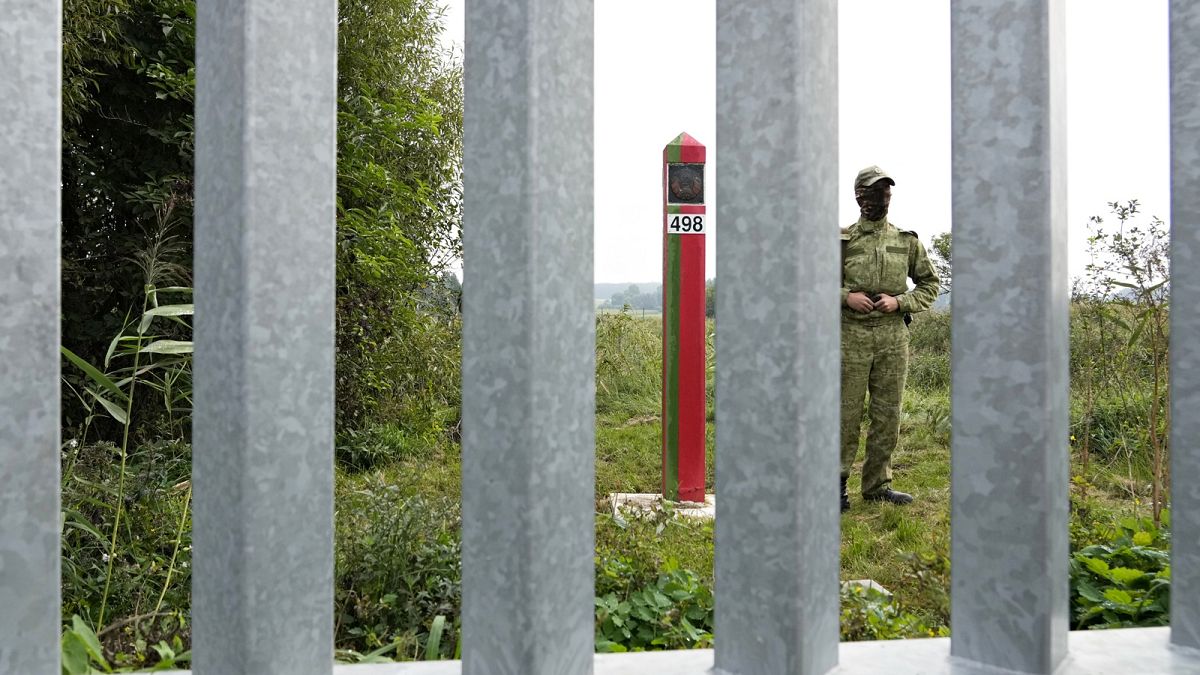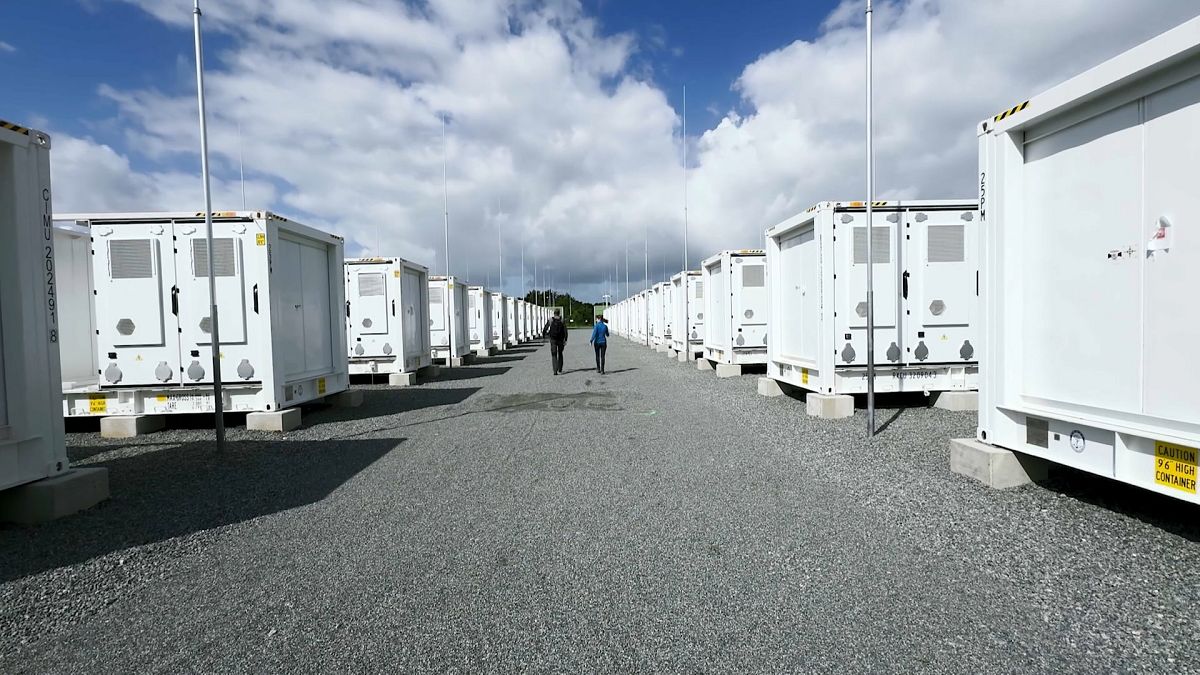ADVERTISEMENT
Just over a week ago, pro-Palestinian demonstrators disrupted the Vuelta cycle race to oppose the Israeli team’s participation.
Several stages were disrupted, participants had to dismount before the finish line and the final ceremony was held in a hotel car park without any spectators.
At the same time, Spanish Prime Minister Pedro Sánchez questioned Israel’s right to participate in international competitions, citing Russia as an example of a country frozen out of such events over the war in Ukraine.
He proposed a series of measures to put pressure on the Israeli government, including formalising an arms embargo, increasing humanitarian aid to Gaza and banning ships carrying fuel for the Israeli army from passing through Spanish ports.
This pro-Palestinian position is part of a long tradition of friendship between Madrid and Arab countries that stretches back to the immediate post-WWII years.
Historical heritage
From 1945, Spain under general and dictator Francisco Franco was largely isolated on the international stage.
The country was excluded from the United Nations because of the facist nature of the Franco dictatorship and because Spain, while officially neutral, had been politically aligned with the Axis Powers and had provided support to Nazi Germany.
Franco’s regime sought to break this isolation by forging closer ties with countries in South America and Arab nations, such as Jordan, Saudi Arabia, Egypt, Iraq and Libya.
It was the beginning of the Cold War which led the US government to shift its attitude towards Franco’s Spain. Its geographical location and anti-communist government were seen as valuable assets in the plans of the “free world” and after presenting its application, Spain was formally inducted into the UN on 14 December 1955.
Franco always refused to recognise Israel, “mainly to win votes at the United Nations of the conservative Arab monarchies…but also of Nasser’s socialist regime (in Egypt), Saddam Hussein’s Baathist regime in Iraq and because Spain needed votes for issues surrounding decolonisation,” Rosa María Pardo Sanz, a professor at Madrid’s National University of Distance Education (UNED) told Euronews.
Arab countries made it easier for the Franco regime to “overcome oil crises” and “balance tensions with Morocco” over the Western Sahara, Pardo Sanz said.
Following Franco’s death in 1975, Spain deepened its relations with Palestine and Prime Minister Adolfo Suárez was one of the first European leaders to receive the head of the Palestine Liberation Organisation (PLO), Yasser Arafat, in 1979.
“The PLO was considered an unacceptable or even terrorist organisation in other countries. But in Spain, it was perfectly normal,” Isaías Barreñada Bajo, professor of international relations at Madrid’s Complutense University, told Euronews.
While Spain has maintained a consulate in East Jersualem since the 1850s, it did not establish official diplomatic relations with Israel until 1986.
That saw Spain able to take on the role of mediator in an attempt to resolve the ongoing Israel-Palestine conflict.
There are other factors which may help to explain the level of support among both the Spanish public and the political elite towards the Palestinian cause.
In the 1960s, several Palestinian students, mainly men, came to study in Spain. Some remained in the country, marrying and starting families.
“Nowadays, there are many professionals of Palestinian origin in Spain, including in the economy and commerce. It’s not a large community but it’s very integrated and part of the landscape,” Bajo.
For example, Spain’s current Minister for Youth and Children, Sira Rego, was born in 1973 to a Palestinian father and a Spanish mother.
Public opinion
Studies also show that support for the Palestinian cause is deeply rooted in the Spanish population.
According to a survey conducted by the Elcano Royal Institute and published in July 2025, 82% of Spaniards questioned believe that Israel is committing genocide against the Palestinian people in Gaza and 78% support official recognition of the State of Palestine by European states.
Spain, Ireland and Norway officially recognised Palestinian statehood jointly on 22 May 2024, which at the time brought the total number of UN member states to make the move to 146 out of 193.
Isaías Barreñada Bajo says there is a “convergence between the position of the government and the position of the people.”
“The decision to impose an embargo on arms sales to Israel was supported for months and months by more than 500 Spanish civil society organisations,” says Moussa Bourekba, a researcher at the Barcelona Centre for International Affairs (CIDOB).
He adds that there is a bipartisan “consensus” between the conservative Popular Party (PP) and the Socialist Party (PSOE) on the fact that “the solution to the Israeli-Palestinian conflict necessarily involves the creation of a Palestinian state.”
But despite this broad consensus, a breach seems to have opened up in recent months as Pedro Sánchez’s pro-Palestinian continues to evolve.
“We are in the process of observing a form of instrumentalisation of the Palestinian question on a domestic level, both by certain members of the government and obviously by certain members of the opposition party, the Popular Party and also Vox, the Spanish far-right,” Bourekba says.
While Vox is “pro-Israel, like many European far-right parties”, the case of the PP, which criticises the government’s decisions in order to fulfil its role as the main political opposition, is more complex.
Spanish policy
This support for the Palestinian cause is “in line with a principle of Spanish foreign policy since democratisation: respect for international law. We must remember that states have an obligation to prevent genocide and not to collaborate in it,” explains Isaías Barreñada Bajo.
Domestic policy also plays a role.
Spain is currently governed by a coalition made up of the Socialist Party (PSOE) and the radical left-wing group Sumar.
“This left-wing component in the government is putting pressure on the socialist wing,” says Bajo.
He also points out that most decisions on the Palestinian question are taken by the Prime Minister and not by the Minister of Foreign Affairs.
“It’s really a gamble that goes beyond foreign policy and plays with internal political balances,” he said.
The government is also seeking to present Spain as a country with “an independent and coherent position,” the professor argues.
“The Palestinian question gives it considerable prestige, especially in the Mediterranean and in the global South,” Bajo said, recalling the words of France’s former Foreign Minister Dominique de Villepin who, when asked about the humanitarian situation in Gaza, said “Today, who is saving Europe’s honour in this region? Spain”.
Pedro Sánchez’s stance in favour of the Palestinians can also be explained by the European Union’s difficulties in taking action, undermined by its divisions.
“I think that the Spanish perspective is based on the principle that the European Union is totally paralysed because the Member States are absolutely incapable of adopting a common position on this conflict. There are still countries like Germany, Austria and the Czech Republic that support Israel, or at least believe that dialogue with Israel must continue in order to find a solution to this conflict,” said Moussa Bourekba.
Notably, support for the Palestinian cause in Spain has not been accompanied by a rise in antisemitism, as the Elcano poll shows.
Violent antisemitic incidents have risen across seven countries with the largest Jewish communities outside of Israel, according to the Anti-Defamation League (ADL)’s J7 Task Force report published in May.
These countries in the J7 report include Germany, France, the UK, the US, Canada, Australia and Argentina.
According to UNIA, Belgium’s independent public institution that promotes equality and combats discrimination, 277 people reported antisemitic acts and 79 investigations were opened in 2024, compared with 59 in 2023.
The European Commission condemned “those who are importing” the war in Gaza to Europe and will “step up” its protection of Jewish citizens, a Commission spokesperson told Euronews last week.
“We see a troubling rise of antisemitism, a trend that is entirely unjustifiable,” the spokesperson said, adding: “We stand firmly against all forms of antisemitism. Jewish people must feel safe across Europe.”
“This movement, at both popular and government level, has been able to distinguish between the Jewish question and the Israeli question. In Spain, accusing critics of the State of Israel of antisemitism does not work,” explains Isaías Barreñada Bajo.
“In the debate, we don’t talk about Jews, we talk about Israelis. And this exercise in the rigorous use of ideas and terms has also helped to avoid a simplistic mix. And I think this is an expression of a certain maturity in public opinion and in the debate.”


